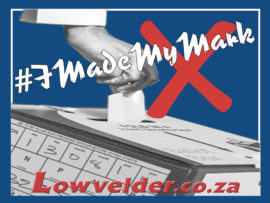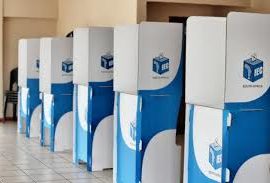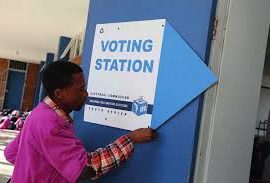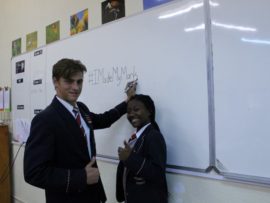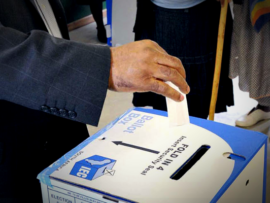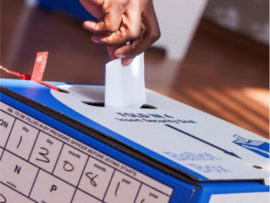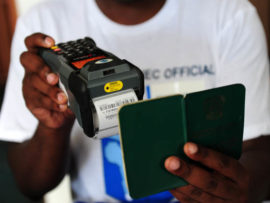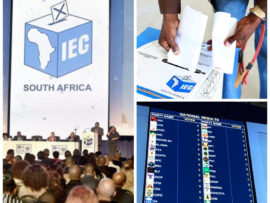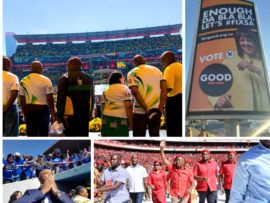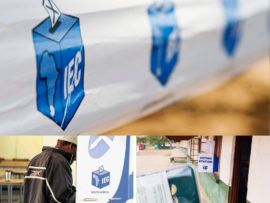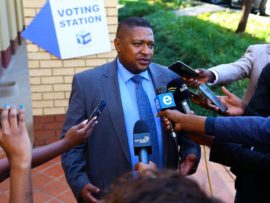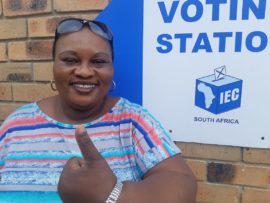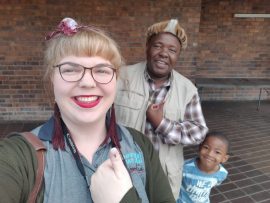Elections 2019 – #ImadeMyMark
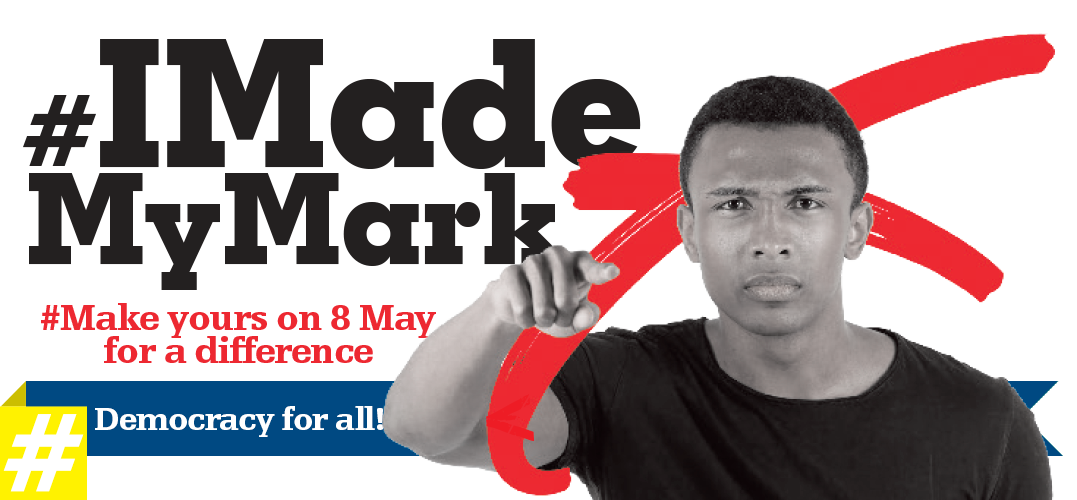
This is the 25th year of our new democracy and the upcoming elections are said, by all the political parties, to be extremely important as to the direction the country will be taking. The Election 2019 will take place on May 8. There are two votes to be cast in this election. One is for your national government and one is for your provincial government.

This time around, according to the Independent Electoral Commission, another 700 000 voters have been added to the voters’ roll and over 81 per cent (574 899) are under 30 years old.
This means that the youth have heeded the call to register.
Combined with new registrations during the March 2018 registration weekend, the voters’ roll has seen 1 194 314 new voters added ahead of the upcoming elections.
Voter gender distribution
52%
48%

The Code is a set of rules. The parties and candidates must: speak out against political violence and threats against other parties, the IEC, members of the public and the media; let the authorities know about planned marches or rallies; communicate with other political parties about planned political events; recognise the authority of the IEC; work with the IEC structures and allow them to perform their duties; work with the police in their investigation of election crime and violence; and accept the results of the election or challenge them in court.
Any person who breaks the Code is guilty of a crime and can be fined or sent to prison for up to 10 years. Political parties that break the Code can be fined; be stopped from working in an area; or have their votes in an area cancelled.
Electoral fraud refers to illegal interference with the process of an election through deliberate wrongdoing. Electoral fraud is a crime.
Visit elections.org.za for more information.

In the queue: An election official will check your ID to make sure you are registered.
At the door: An election official will scan your ID with the zip-zip machine.
At the voters’ roll table: You will give your slip of paper to the voters’ roll officer.
At the inking table: An election official will make a small mark on the nail of your left thumb with ink.
At the ballot paper table: You will be given up to two ballots.
At the voting compartments: Mark your ballot in secret. Then put your ballot on the correct ballot box – either National or Provincial.

• One paper is to choose your preferred political party for the National Assembly; the other paper is to choose your party for the Provincial Legislature.
• Information on the ballot papers: the full name of each political party – the abbreviated name of each party – the logo or symbol of each party – a photograph of each party leader – a blank space in which to indicate the party of your choice.
• Every ballot paper is stamped at the back by an IEC official as you receive it. This prevents people from trying to bring ballots in from elsewhere.
• Make your mark in the box next to the party of your choice. Be careful not to let your mark touch any of the walls of the box. Make only one mark on the ballot paper: It is best to make a cross like this: X. Any mark is fine as long as it shows who you are voting for. This helps the voting officials when they count the votes.
• If you have made a mistake, tell the election official. He or she will then cancel your ballot paper and give you another.
• Fold each ballot paper in half, so nobody can see your mark. An election official will check the stamp on the back. Then place each provincial and national ballot paper in the correct ballot box.
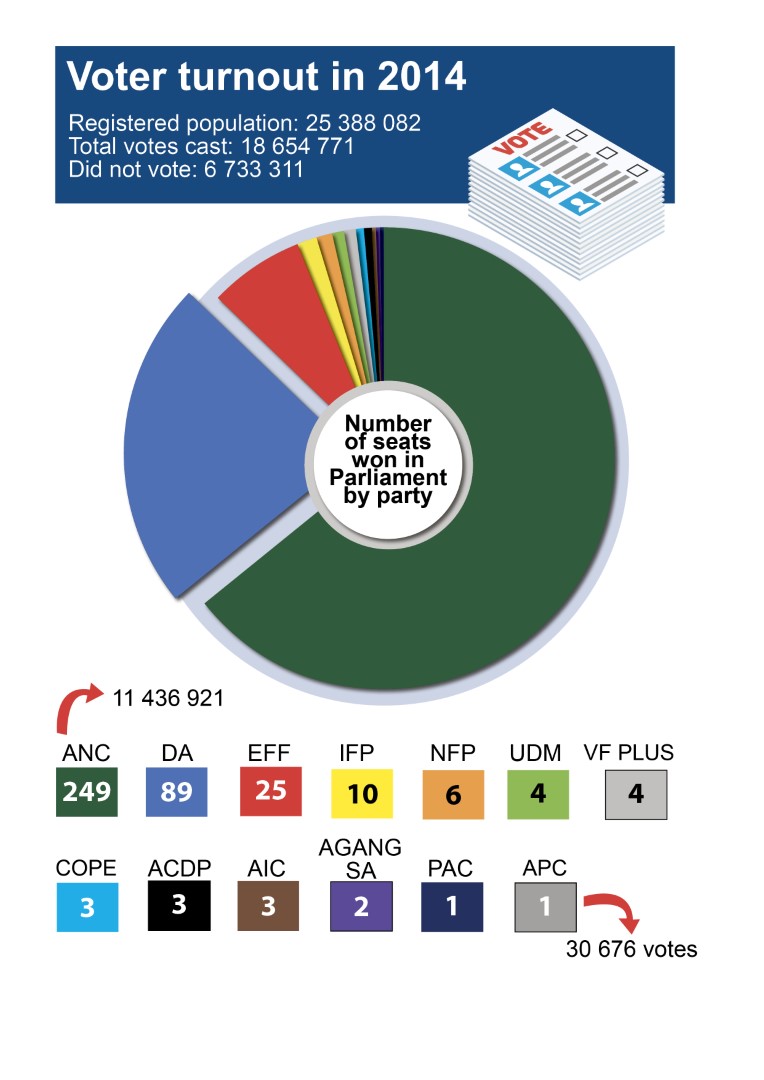

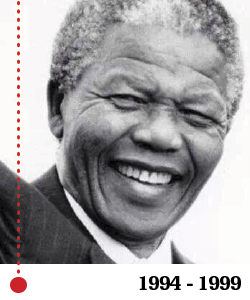
Nelson Mandela’s greatest achievement was one of great statesmanship. He managed to steer the country to a peaceful democracy. One that gave hope to all its citizens. He won the Nobel Peace Prize in 1993 (one of around 250 awards he received). He is referred to as the Greatest Stateman the world has seen.
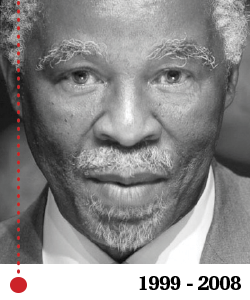
Thabo Mbeki’s greatest achievement was probably his role in conflict resolution inAfricang the Sudan. The South African economy did fairly well under Mbeki. Mbeki was responsible for selling Mandela’s image to the world during the struggle against Apartheid.
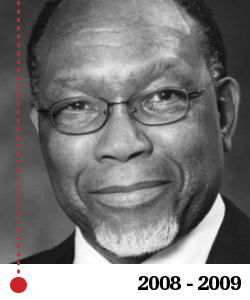
Kgalema Motlanthe’s achievements were the creation of pension and education funds, as well as the enactment of a new wage scale that would soften the financial blow to mine workers when ore and diamond prices dipped.
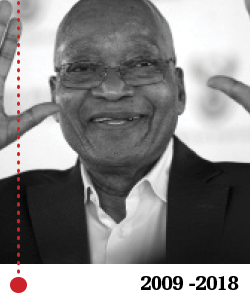
Jacob Zuma’s established the Department of Performance Monitoring and Evaluation, and the National Planning Commission, which produced the National Development Plan (NDP) Vision 2030. He launched the Siyahlola Presidential Monitoring Programme through which he undertook unannounced and scheduled visits to various communities to ascertain progress in delivering services to the people.
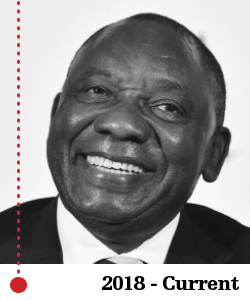
Cyril Rhamaposa is lauded and respected as co-convener of the country’s internationally acclaimed Constitution, for which he received The Order of the Baobab in Silver. Cyril pledged a ‘new dawn’, promising the weary yet hopeful South Africans out there that he would focus his attention on cleaning up governance issues and driving an economic turnaround. He is sometimes referred to as the corruption buster and has set up various commissions to uncover corruption, think Guptas and Bosasa.
Election News


